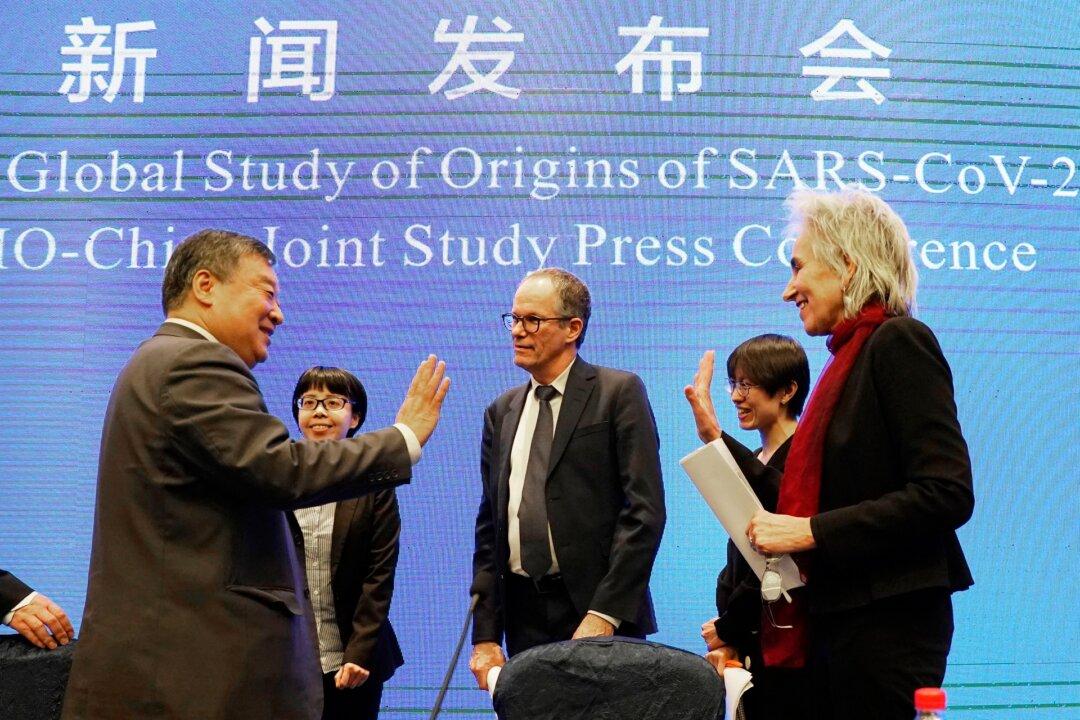A Chinese dissident has condemned the World Health Organization’s findings on the source of the pandemic as a “farce,” adding that the Chinese regime is likely to leverage them to deflect responsibility for causing the global crisis.
According to Yuan Hongbing, a Chinese academic and vocal critic of the Chinese Communist Party (CCP) living in Australia, the WHO investigation in Wuhan was akin to “a farce staged by the Chinese regime.”





